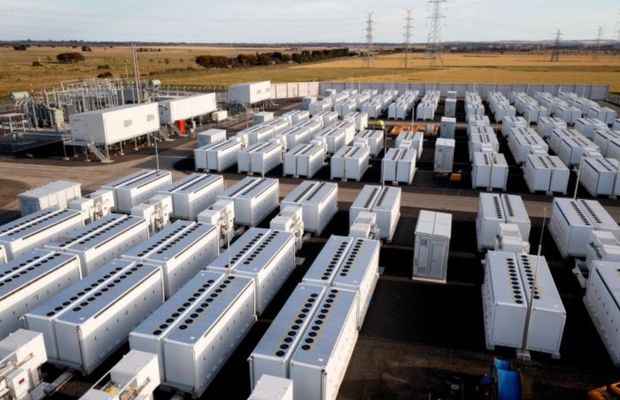Battery Energy Storage Systems (BESS) are increasingly seen as a pivotal technology in the decentralization of power, offering communities around the world an unprecedented opportunity to take control of their energy futures. By enabling the local generation, storage, and consumption of energy, battery energy storage systems (BESS) empower communities to become more self-sufficient, resilient, and sustainable. Here’s a detailed look at how battery energy storage systems (BESS) are driving the decentralization of power and empowering communities:

1. Enhancing Energy Access
In remote or underserved areas, traditional energy infrastructure often falls short, leaving communities without reliable access to electricity. Battery energy storage systems (BESS) combined with renewable energy sources like solar and wind, can provide a sustainable solution to this challenge. By storing energy when it’s abundant and releasing it when needed, battery energy storage systems (BESS) ensure a continuous energy supply, thereby enhancing energy access and supporting socio-economic development.
2. Promoting Energy Independence
Communities that adopt battery energy storage systems (BESS) reduce their reliance on centralized energy sources and the broader grid. This independence is particularly valuable in regions where grid electricity is expensive, unreliable, or sourced from fossil fuels. By generating and storing their own renewable energy, communities can protect themselves from price fluctuations, supply disruptions, and the environmental impacts associated with traditional energy sources.
3. Supporting Local Economies
The implementation of battery energy storage systems (BESS) and associated renewable energy projects can stimulate local economies. These projects create jobs in the installation, operation, and maintenance of storage systems and renewable energy technologies. Additionally, energy cost savings and increased reliability can support the growth of local businesses and attract new investments, further driving economic development.
4. Increasing Resilience to Power Outages
Battery energy storage systems (BESS) provide communities with a critical buffer against power outages caused by extreme weather, natural disasters, or grid failures. By ensuring a reliable supply of stored energy, communities can maintain essential services during emergencies, enhancing their resilience and reducing the vulnerability of critical infrastructure, healthcare facilities, and communication networks.
5. Facilitating the Shift to Clean Energy
Decentralized energy systems powered by battery energy storage systems (BESS) and renewable sources are key to reducing greenhouse gas emissions and combating climate change. By enabling communities to transition away from fossil fuels, these systems support global sustainability goals and contribute to cleaner air and a healthier environment. This shift also raises awareness and fosters a culture of sustainability at the community level.
6. Empowering Community Participation
The decentralization of power through battery energy storage systems (BESS) encourages community participation in energy decision-making. Community-owned energy storage and generation projects can be governed in a way that reflects local priorities and values, ensuring that the benefits of these projects—such as reduced energy costs and environmental impacts—are shared equitably among community members.
7. Enabling Energy Democracy
Battery energy storage systems (BESS) are a tool for achieving energy democracy, a movement that seeks to decentralize control over energy resources and make energy systems more democratic, equitable, and inclusive. By giving communities the means to produce, store, and manage their own energy, Battery energy storage systems (BESS) help distribute power (both literally and figuratively) more broadly, challenging traditional centralized models of energy production and distribution.
Conclusion
Battery Energy Storage Systems are not just transforming the technical landscape of energy generation and storage; they are redefining the social and economic structures of energy consumption. As battery energy storage systems (BESS) become more accessible and affordable, their role in empowering communities, promoting energy democracy, and driving the decentralization of power will continue to expand. This paradigm shift towards more localized and sustainable energy systems offers a promising pathway to a resilient, equitable, and clean energy future.
